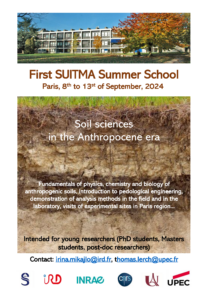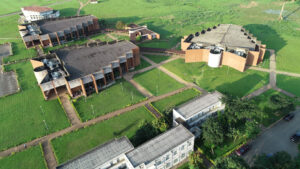
Thesis defense Zibo LI
«Chemoreception in moths: evolutionary and transcriptomic approaches»
Zibo LI, doctorante Chinese Scientific Council-Université Paris-Saclay, équipe CREA du dpt ECOSENS,
vous convie à la soutenance de sa thèse :
«Chemoreception in moths: evolutionary and transcriptomic approaches»
Le jury sera composé de :
Emmanuelle JACQUIN-JOLY, Directrice de recherches INRAE, iEES Paris, Versailles, directrice de thèse
Fotini KOUTROUMPA, Chargée de recherches INRAE, Université de Tours, examinatrice
Marjorie LIENARD, Université de Liège (Belgique), rapporteur
Camille MESLIN, Chargée de recherches INRAE, iEES Paris, Versailles, co-encadrante
Nicolas NEGRE, Professeur des Universités (Montpellier), rapporteur
Jean-Christophe SIMON, Directeur de recherches INRAE, Université de Rennes, examinateur
La soutenance aura lieu mercredi 10 juillet 2024 à 13 h 30
INRAE Versailles, bâtiment 10, Grande salle des SDAR
https://inrae-fr.zoom.us/j/3786339931?pwd=bFXvnV3eDsMrC8v8Cb6QmfU0Nmr2t8.1&omn=92898504077 ID: 378 6339 931 – Code: ZibophD@10
Abstract:
At the interface between the insect and its environment, olfaction and taste are two sensory modalities that are crucial in reproductive behavior and host-plant selection, playing an essential role in the adaptation of species to their environment as well as in the speciation process. In insects, odorants are mainly detected by odorant receptors (ORs) while tastants are mainly detected by gustatory receptors (GRs). Both types of receptors are seven transmembrane domain receptors and form large gene families.The aim of the thesis is to investigate how the odorant and tastant information is received by the moth chemosensory system and how this system has evolved. Using the two moth species Spodoptera littoralis and Agrotis ipsilon, OR and GR gene families were studied from an evolutionary and functional point of view through a combination of RNA sequencing and functional studies.
The first chapter deciphers the evolutionary trajectory of a crucial pheromone receptor in S. littoralis, explaining its evolution from broad to specific tuning as a clear case of subfunctiona-lization, which may have been key in the speciation process. The second chapter presents the deorphanization of an OR located in a plant volatile-activated pheromone receptor neuron in A. ipsilon, and a single-nucleus sequencing approach proposes potential ORs responsible for plant volatile recognition in these sensory neurons. In the third chapter, we gained a better understanding of the complex assembly of the OR with its co-receptor Orco. The fourth chapter describes the expression map of chemosensory genes in S. littoralis across larvae and adults. The last chapter unravels OR or GR heteromers in individual neurons in the moth models, providing insights into the assembly of the different subunits forming a functional chemosensory receptor. Our studies enhance our comprehension of the expression, function, evolution and adaptation of chemosensory genes in moths.
Keywords: Lepidoptera, chemosensory gene, evolution, heterologous expression, ancestral gene resurrection, transcriptome





